|
IMPORTANT DATES
Course Dates:
August 24 - 28, 2015
Share This Meeting
|
|

|
Home
|
Registration
|
Housing and
Travel
|
Technical
Program
|
Instructors
|
|
|
Simulation of Additive Manufacturing Technologies
August 24-28, 2015 • Louisville, Kentucky, USA
Chair: Deepankar Pal, University of Louisville
Sudarsanam Suresh Babu, University of Tennessee-Knoxville
Kevin Chou, University of Alabama
Erik Denglinger, Pan Computing
Ola Harrysson, North Carolina State University
Pan Michaleris, Pennsylvania State University
Kevin Murphy, University of Louisville
Ted Reutzel, Pennsylvania State University
Thomas Starr, University of Louisville
Brent Stucker, 3DSIM LLC
John Usher, University of Louisville
James Y. Yang, General Electric
Wei Zhang, The Ohio State University
Organizing Chair and Instructor:
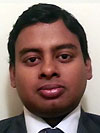 Deepankar Pal
Deepankar Pal, is an inventor, co-founder, and chief scientist at 3DSIM and assistant professor at the University of Louisville. At 3DSIM, Pal works in the area of 3D finite element simulations of additive manufacturing (AM) processes, with a particular focus on modeling of metal laser sintering and solid state AM processes. Pal currently serves as co-principal investigator on funded research grants focused on simulation, validation, and optimization of metal-based AM technologies funded by the National Science Foundation, America Makes (the National Additive Manufacturing Innovation Institute), the U.S. Air Force Research Laboratory, the Office of Naval Research, and other, totaling over $2.5 million. His work has included discolation-density-based 3D non-linear, non-local finite element modeling of Ultrasonic Consolidation, for which he won the best paper award for "Some Studies on Dislocation Density Based Finite Element Modeling of Ultrasonic Consolidation" at the International Conference on Advanced Research in Virtual and Rapid Prototyping (VRAP, Leiria, Portugal, 2011). He is a named inventor on multiple patents focused on novel numerical approaches for 3D simulation of thermomechanical phenomena in metal-based AM processes.
Co-Organizers and Instructors:
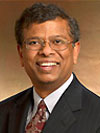 Sudarsanam Suresh Babu
Sudarsanam Suresh Babu holds the University of Tennessee/Oak Ridge National Laboratory (UT/ORNL) governor’s chair in advanced manufacturing at the University of Tennessee-Knoxville, and serves in the Department of Mechanical, Aerospace and Biomedical Engineering. Babu has a joint professorship with the Department of Materials Science and Engineering (MSE). As a governor's chair, he leads basic and applied research in a wide range of additive and other advanced manufacturing processes, including product design implications in collaboration with industry, faculty, and students at UT as well as with researchers at the Manufacturing Demonstration Facility (MDF) at ORNL. Babu has published more than 150 journal papers and numerous conference proceedings.
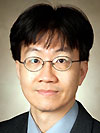 Kevin Chou
Kevin Chou is a professor of mechanical engineering at The University Alabama. He is a Fellow of ASME, also a registered Professional Engineer in Alabama. Chou received his Ph.D. in industrial engineering from Purdue University. His research areas have been focused on advanced manufacturing including additive manufacturing (AM), composite machining, and diamond coatings, sponsored by NASA, the National Science Foundation, the U.S. Department of Defense, as well as various industries. Among his broad experience, Chou has been a faculty fellow at Marshall Space Flight Center, a visiting professor at National Chung Cheng University (Taiwan), a guest researcher at National Institute of Standards and Technology, and most recently, the Assistant Director for Technology in the Advanced Manufacturing National Program Office of U.S. Commerce Department, supporting the National Network for Manufacturing Innovation (NNMI) program.
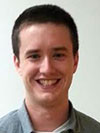 Erik Denglinger
Erik Denglinger , is a consultant for Pan Computing LLC, a software development and commercialization company for physics-based modeling of additive manufacturing (AM) processes. His work has focused on investigating material effects on distortion and residual stress accumulation during AM processing and developing, and validating thermomechanical models for laser and electron beam direct energy processes. Currently he is working on modeling and experimental validation for powder-bed AM processing. He received his Ph.D. in 2015 in mechanical engineering at The Pennsylvania State University. Denlinger has authored four peer-reviewed journal papers. His research interests include manufacturing process modeling, experimental design for model validation, finite element methods, and residual stress and distortion..
 Ola L.A. Harrysson
Ola L.A. Harrysson joined the Industrial and Systems Engineering Department at North Carolina State University (NCSU) in 2002 after receiving his Ph.D. in industrial engineering from the University of Central Florida. He received his bachelor’s degree in mechanical engineering from Dala University in Sweden. He has been conducting research in rapid prototyping and additive manufacturing (AM) for over 15 years. Harrysson was responsible for the acquisition of the first Electron Beam Melting (EBM) machine in 2003 and currently houses two EBM machines in his lab at NCSU. His main areas of research are medical application of AM technologies, custom design and fabrication of orthopedic implants, medical device development, and materials development for the EBM technology. Harrysson is currently a professor, a Fitts Faculty Fellow in Biomedical Manufacturing, and the co-director of the Center for Additive Manufacturing and Logistics in the Fitts Department of Industrial and Systems Engineering at NCSU.
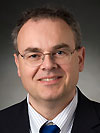 Pan Michaleris
Pan Michaleris is a professor in the Mechanical and Nuclear Engineering Department at the Pennsylvania State University. He received his Ph.D. in 1994 in theoretical and applied mechanics at the University of Illinois at Urbana-Champaign, and was a senior research engineer at the Edison Welding Institute (EWI) until 1997. In 2012, Michaleris co-founded Pan Computing LLC (pancomputing.com), a software development and commercialization company for physics-based modeling of additive manufacturing processes. His research areas include computational mechanics, finite element methods, manufacturing process modeling, and residual stress and distortion. Michaleris authored Minimization of Welding Distortion and Buckling and in addition to more than 80 peer reviewed journal and proceedings papers. He currently serves on the editorial board of Science and Technology in Welding and Joining, and he is an associate editor for Welding Journal.
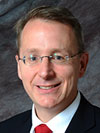 Kevin Murphy
Kevin Murphy is currently a professor and department chair of Mechanical Engineering at the University of Louisville. He earned his B.S. and M.S. in mechanical engineering and applied mechanics from the University of Michigan and his Ph.D. in mechanical engineering from Duke University. His research focuses on nonlinear dynamics, vibrations, and stability, but also touches on solid mechanics, fracture mechanics, and signal processing. He has been awarded a NASA GSRP Fellowship, a National Science Foundation CAREER Award, and several other competitive grants in support of his research program. He has also received several awards for distinguished teaching, in addition to being recognized by both branches of the Connecticut State Legislature for teaching excellence.
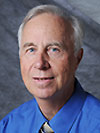 Thomas Starr
Thomas Starr is the Associate Dean for Research and professor of chemical engineering in the J.B. Speed School of Engineering in the University of Louisville (UofL). He joined UofL in August 1998 and served as the chair of the Chemical Engineering Department from 2000–2004. Prior to joining UofL, Starr spent 18 years at the Georgia Institute of Technology (Georgia Tech) directing and managing research programs in the School of Materials Science and Engineering and in the Georgia Tech Research Institute. Starr earned a Ph.D. in physical chemistry from the UofL and a B.S. in chemistry from the University of Detroit.
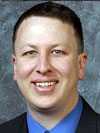 Brent Stucker
Brent Stucker inventor, co-founder, and CEO of 3DSIM, is an internationally recognized additive manufacturing (AM) expert with more than 20 years of experience performing research on AM technologies and their applications. His research has included new materials development, computational modeling, and novel applications for AM. Stucker was the inaugural chair of the ASTM International Committee F42 on Additive Manufacturing Technologies from 2008–2014. He co-authored the textbook Additive Manufacturing Technologies: Rapid Prototyping to Direct Digital Manufacturing, which is utilized by AM practitioners and educators around the world. He has numerous patents, has authored or co-authored more than 150 technical papers on AM, has presented more than 100 technical talks, sits on the organizing committees for major AM conferences worldwide, and is part of the editorial board for multiple leading journals related to AM. Stucker is a former professor of industrial engineering and held the Clark Chair of Computer Aided Engineering at the University of Louisville and has held multiple previous academic appointments.
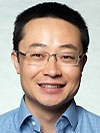 James Y. Yang
James Y. Yang is a lead engineer at the Additive Manufacturing Lab at GE Global Research in Niskayuna, NY. He possesses 10 years of academic and industrial research experience on additive manufacturing technologies. His research interests include process development and innovation, multi-material process, smart structures, and printed sensors. He has published 14 peer-reviewed journal and conference papers. Yang holds a B.S. in welding engineering from Beihang University (China), and a Ph.D. in mechanical engineering from Utah State University.
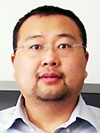 Wei Zhang
Wei Zhang is an associate professor in the Department of Materials Science and Engineering—Welding Engineering Program at The Ohio State University (OSU). Prior to coming to OSU in January 2013, he worked as a senior researcher at the Oak Ridge National Laboratory from 2008–2012 and as an engineer team leader at the Edison Welding Institute from 2004–2008. Zhang’s B.S. and M.S. in materials science and engineering were both earned at the Huazhong University of Science and Technology in China. He then went on to the Pennsylvania State University, where he earned his Ph.D. in materials science and engineering in 2004. Zhang’s research at OSU is focused on multi-physics modeling of welding and additive manufacturing, material constitutive behavior under extreme conditions, and neutron and synchrotron x-ray diffraction.
For more information about this meeting, please complete the meeting inquiry form or contact:
TMS Meeting Services
184 Thorn Hill Road
Warrendale , PA 15086-7514 USA
Telephone (724) 776-9000, ext. 241
(800) 759-4TMS
Fax: (724) 776-3770
E-mail: mtgserv@tms.org
|